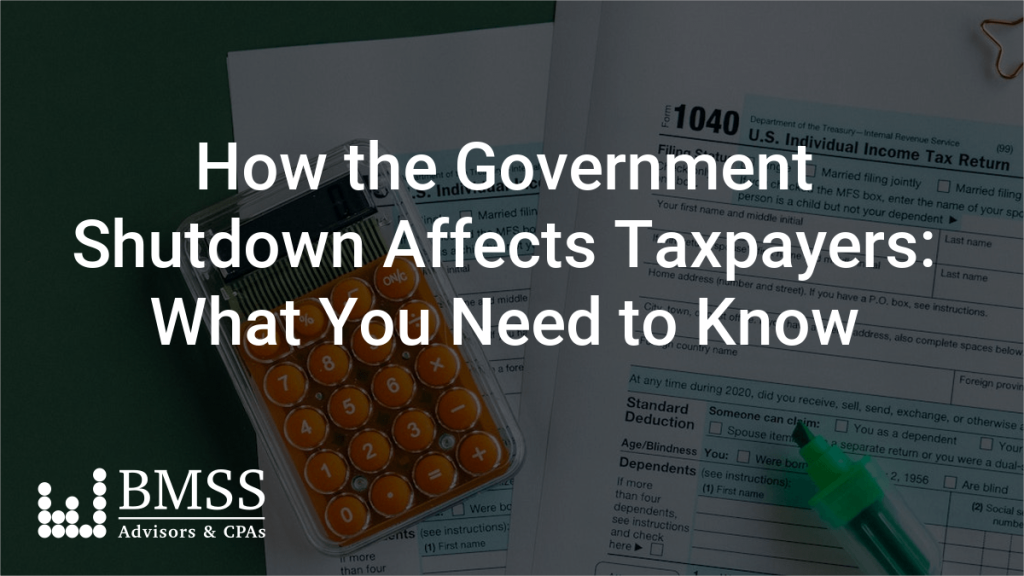
The federal government shutdown that began October 1, 2025, has created significant disruptions at the IRS, with approximately 35,000 employees—nearly half the agency’s workforce—now furloughed. As taxpayers face the critical October 15 extension deadline and businesses prepare for the upcoming filing season, understanding these impacts is essential for protecting your interests.
What’s Still Working at the IRS
Despite the widespread furloughs, several critical IRS functions remain operational:
- Electronic filing systems continue to accept returns and process refunds normally
- Direct deposit refunds are still being issued for e-filed returns
- Electronic payment systems remain active for tax payments
- Essential IT operations and criminal investigations continue
- Return processing for electronically filed returns proceeds as usual
Services That Are Suspended or Delayed
The furloughs have significantly impacted people-powered IRS operations:
- Customer service phone lines are largely inactive, making it nearly impossible to reach IRS representatives
- Paper return processing faces substantial delays
- Audit and examination activities are suspended, though automated notices may continue
- Collections enforcement is paused, but automated collection notices may still be issued
- Correspondence responses will be significantly delayed
- Appeals processes are on hold
- Taxpayer Advocate Service is currently closed
Critical Deadlines and Filing Requirements
The government shutdown does not change your tax obligations:
- October 15 deadline remains in effect for taxpayers who filed extensions for their 2024 tax returns
- Filing penalties still apply if you miss the deadline, regardless of the shutdown
- Interest and penalties continue to accrue on unpaid tax balances
- Quarterly estimated tax payments are still due on their normal schedule
Impact on Refunds and Processing
Your refund timeline depends largely on how you file:
- E-filed returns with direct deposit will continue processing normally
- Paper returns will face processing delays that could extend well beyond the shutdown
- Amended returns requiring manual review will be delayed
- Refunds requiring additional verification may be held up until full staffing returns
Business Implications
The shutdown creates particular challenges for business taxpayers:
- Payroll tax deposits must continue as scheduled—systems remain operational
- Employment tax compliance deadlines are unchanged
- Information reporting requirements remain in effect
- Sales tax obligations to states continue unaffected
- Audit responses and documentation requests may be delayed
Economic Consequences of Extended Shutdown
Financial experts project significant broader impacts if the shutdown continues:
- GDP reduction of approximately 0.1% for each week of shutdown
- $400 million daily cost in unpaid federal employee compensation
- Delayed economic data that could affect Federal Reserve monetary policy decisions
- Reduced government revenue collection capabilities
What Taxpayers Should Do Now
To minimize disruption during the shutdown:
- File electronically if possible and choose direct deposit for fastest processing
- Don’t delay October 15 filings—penalties will apply regardless of shutdown
- Keep copies of all correspondence sent to the IRS during the shutdown
- Continue making required tax payments on schedule
- Work with your BMSS tax advisor to monitor developments and ensure compliance
- Avoid paper filing unless absolutely necessary
If you have any questions about the government shutdown and how it may impact your filing or taxes, please reach out to your BMSS professional by calling (833) CPA-BMSS or visit our website for specific contact information.
